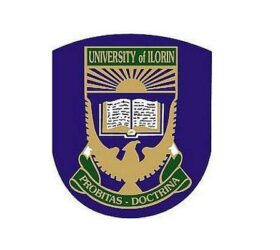
The Vice Chancellor of the University of Ilorin, Prof. Wahab Olasupo Egbewole, SAN, has praised the existing China Africa cooperation, saying that it would boost the implementation of the Memorandum of Understanding (MoU) recently signed between UNILORIN and the North-China University of Water Resources and Electric Power. I N Prof. Egbewole said the cooperation will make the two universities winners, especially from the perspectives of curriculum development, collaborative research, split site degree, joint conferences, and impactful community development.
The Vice Chancellor of the University of Ilorin stated this penultimate Thursday (September 5, 2024) in Beijing, China, during a roundtable discussion at the First Exchange Mechanism Conference of the China-Africa Consortium of Universities and China-Africa Higher Education Dialogue held in the Chinese capital.
Prof. Egbewole said, “For Africa and China, the current engagement will provide handshake, which can dovetail into development of higher education and the creation of more talents equipped with state -of-the-art technologies. He added that UNILORIN and the North-China University will serve as hubs of relationship and bases for a more enduring and sustainable development.
On the efforts of the University in talent development, the Vice Chancellor explained that UNILORIN, which was established in 1975, is Nigeria’s most subscribed institution of higher learning that also hosts the highest number of foreign students.
Prof. Egbewole said that the University has “more than 50,000 students and over 15, 000 hectares of land. It has 16 academic Faculties apart from other Centres. We have 103 programmes. We have consciously leveraged technology to develop talents. To this end, our University won the Instructor award by Huawei and ICT Academy both in 2023. We have designed innovation hub idea to motivate our students as well as trained more than 100 students and staff on Artificial intelligence”.
The Vice Chancellor, however, lamented the challenges faced by the University in talent development, pointing out that the challenges include infrastructural limitations such as lecture theatres, electricity, laboratories, funding constraints, language diversities, and the rapidly evolving technological landscape.
To tackle these issues, Prof. Egbewole said that the University has created virtual laboratories, co-created startups for innovative ideas, and invested in technology development by establishing the Centre for Open and Distant Learning to provide greater access to education for young people.
He, however, noted that the current MoU with the North China University of Water Resources and Electric Power is set to further expand opportunities for collaboration in talent development. This includes the potential establishment of a Confucius Institute, staff and student exchanges, and joint research initiatives aimed at addressing some of the existing challenges.